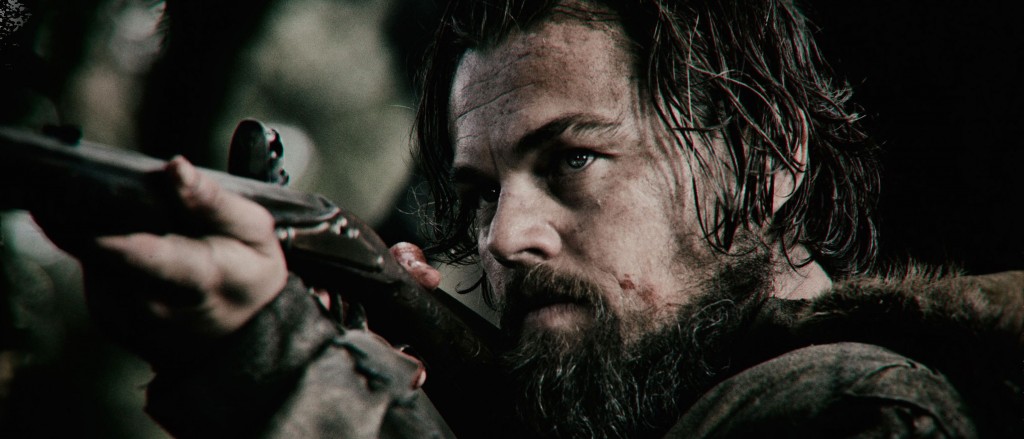America in the 1820s. Following a brutal attack by a grizzly bear, heavily wounded frontiersman, Hugh Glass (Leonardo DiCaprio), is left for dead by members of his commercial fur-trapping team (Tom Hardy, Will Poulter), who volunteered to look after him. Glass’ struggle for survival to take revenge forms the crux of the film.
The Revenant, taking off from Michael Punke’s novel on the legend/myth of Hugh Glass, is a spectacular piece of filmmaking. Visually stunning, the unrelenting brutal yet beautiful looking film is filmed in breathtakingly gorgeous yet arduously difficult terrain, often in hostile weather conditions, that were a tremendous physical burden on its entire crew for much, if not all, of its roughly 80 days of chronological shooting. That’s what makes director Alejandro Inarritu’s achievements all the more applause worthy.
The narrative tale on the other hand for all its amazing visuals is surprisingly not so engaging, at times overindulgent, largely predictable, even falling flat when it tries to give the film (and Glass’ character) a spiritual layer through the various dream/hallucination sequences. The plot – though dealing with issues of Man vs Nature/The Wild, The Indians vs the White Man – is little more than a basic survival-and-subsequent revenge saga and the characterizations are generally too surface-like and don’t really draw you into the film – it’s more the sensational camerawork and sound design that leave you in jaw-dropping wonder than the actual story, that flags in places. That said, there are several memorable images and sequences in the film, none more so than the one with the bear mauling Glass. As the grizzly toys with Glass, we can hardly keep our eyes on screen at the ferocious assault. And yet, neither can we keep them away.
A similar kind of problem also plagues Leanardo DiCaprio’s central performance. No doubt, it is easily one of the most physically grueling performances ever put together on screen and DiCaprio’s staggering commitment to do whatever it takes for the role is highly commendable. But in spite of giving him a past to play on his human side, his characterization is largely uni-dimensional and doesn’t get you to empathize with him easily enough. With much talk about whether this IS finally his Oscar winning performance – well, he’s certainly done more than enough for the Academy’s perception of what it takes to win the coveted statuette. From eating raw fish to repeatedly getting into freezing water to sleeping inside a horse’s carcass (prosthetically created let it be stated), to even eating raw bison liver, he does it all. In that sense, the performance screams OSCAR! But if one is looking at an in-depth psychological act to go with the physical, the script doesn’t give him as much scope as it should and let us be honest. He’s done better. The supporting cast is fine but here too the script doesn’t really give them much to work with. Still, Tom Hardy makes a his mark as the antagonist who left Di Caprio to die.
The real star of the film is undoubtedly its cinematographer, Emmanuel Lubezki. Shooting mostly with available light in the splendor of the winter of Canada and Argentina, he gives us stunning panoramas of the deceptively beautiful and calm landscapes of what is supposed to be the Wild West. Each and every image is absolutely awe-inducing and it’s been a while since one has seen a film looking this good. Lubezki and Inarritu combine for some extremely well-conceived, phenomenal long takes that involve both, complicated camera and character movements. In fact, the camera is pretty much on the move throughout the film, lurking around even as it perfectly brings out the immensely hazardous nature of the terrain behind all its seemingly poetic beauty. If there is one Oscar the film throughly deserves, it is for its fine cinematography. A special nod must also go to the sound department and of course, the production design by Jack Fisk. The film is mounted and produced beautifully on an epic level that is astounding.
Overall, while The Revenant no doubt blows your mind by its cinematic execution, you only wish it didn’t leave you as cold as it does towards its narrative flow. It only proves yet again, that ultimately no matter what, content is indeed king.
English, Adventure, Drama, Color


